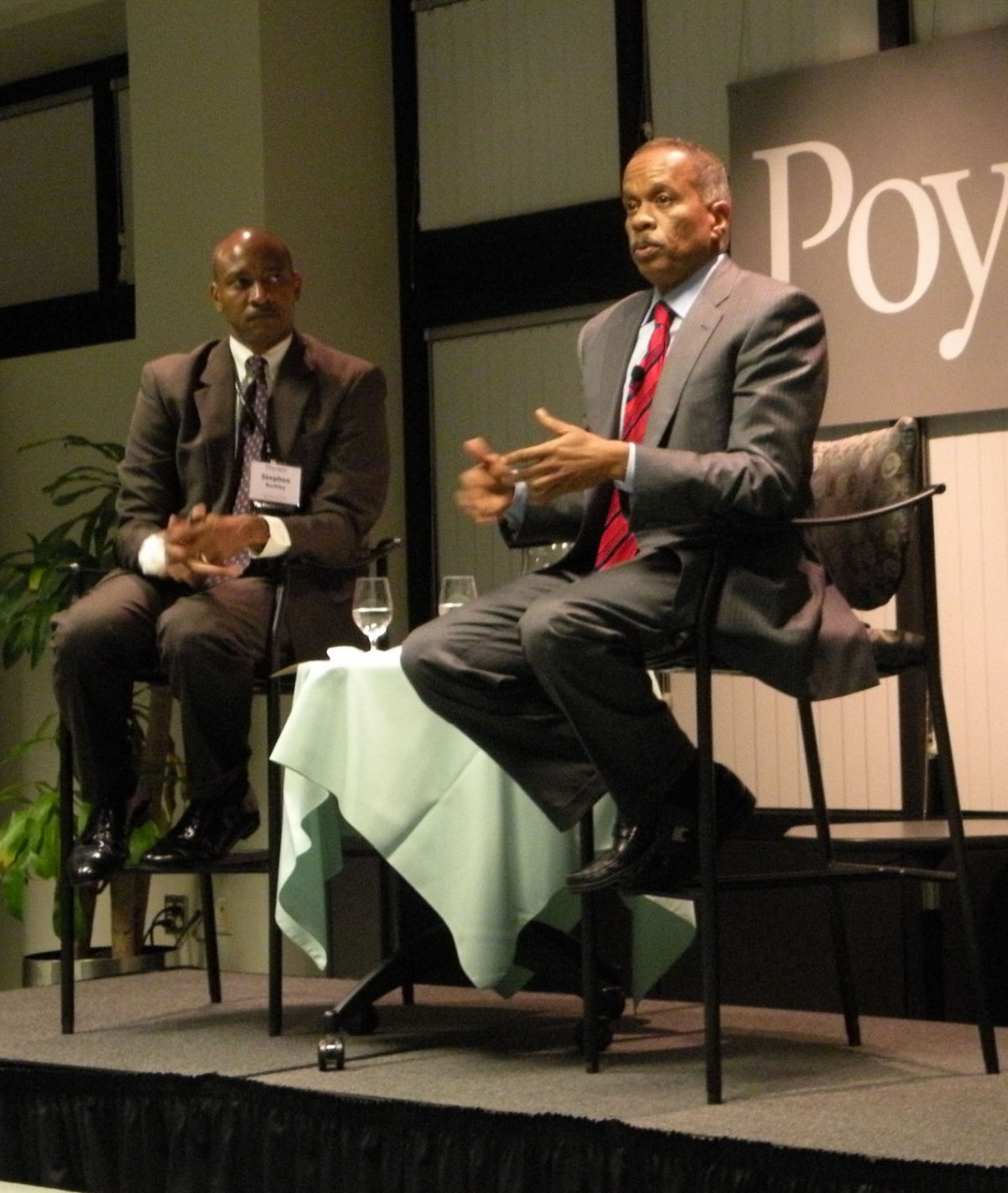Fox News political analyst, Juan Williams, believes genuine debate in America has been stifled by political correctness and polarizing politics.
Williams discussed these and various themes found in his recent book, “Muzzled: The Assault on Honest Debate,” during a community conversation at The Poynter Institute on Sept. 26.
“I think debate today is driven by the extremists,” Williams said.
He recognizes debate online and on cable, but says debate about hot subjects—such as abortion—is left to provocative lobbying or advocacy groups who speak to their niche audience.
“The way conversations are held is really among people of like minds,” Williams said.
Williams traces the scarcity of honest debate to people’s fear of being politically incorrect. Williams believes the emphasis on being politically correct has turned into skirting issues and biting tongues.
Comments Williams made on “The O’Reilly Factor”—about his uneasiness when boarding planes with people in Muslim garb—led to his very public dismissal from NPR last fall.
Both sides use the political correctness tactic against each other, Williams writes in his book.
“While the Left mostly uses PC (political correctness) on minority identity issues like race and ethnicity,” Williams writes, “the Right uses it on issues of piety and patriotism.”
This “with us or against us” mentality has further polarized Americans into their respective parties, Williams said.
“Today, we are in an environment that I would not describe as broadcasting … but more narrow-casting,” he said.
Williams said people go to websites and blogs that support their taste.
He believes this constricts the opportunity for honest debate.
“What you get is people reaffirming pre-existing attitudes and opinions,” he said. He believes people are merely looking for information that validates their thinking.
Because conversation is held among people of like minds, Williams said it creates an unwillingness to listen to other points of view. When he was younger and watched anchorman Walter Cronkite report the news, he said he never considered Cronkite’s political affiliation.
Now, Williams said, a newscaster’s personality and lifestyle have become more of an issue when they report the news. He said people want to hear the news from people who think like them.
“They invest trust in personalities that they have come to know and then rely on to help them interpret the news,” Williams said.
USFSP senior Samantha Ford, who attended the event, agreed that she prefers to know newscasters’ political affiliations. “News is so slanted, you want to know who’s giving it,” Ford said.
Williams was open to discuss his dismissal from NPR, where he worked as a news analyst for 10 years. He said that NPR took his comments on “The O’Reilly Factor” out of context, and he was stunned when he was informed of his dismissal. He writes about the event in his book’s first chapter, “I Said What I Meant.”
Photo by Jane McInnis



